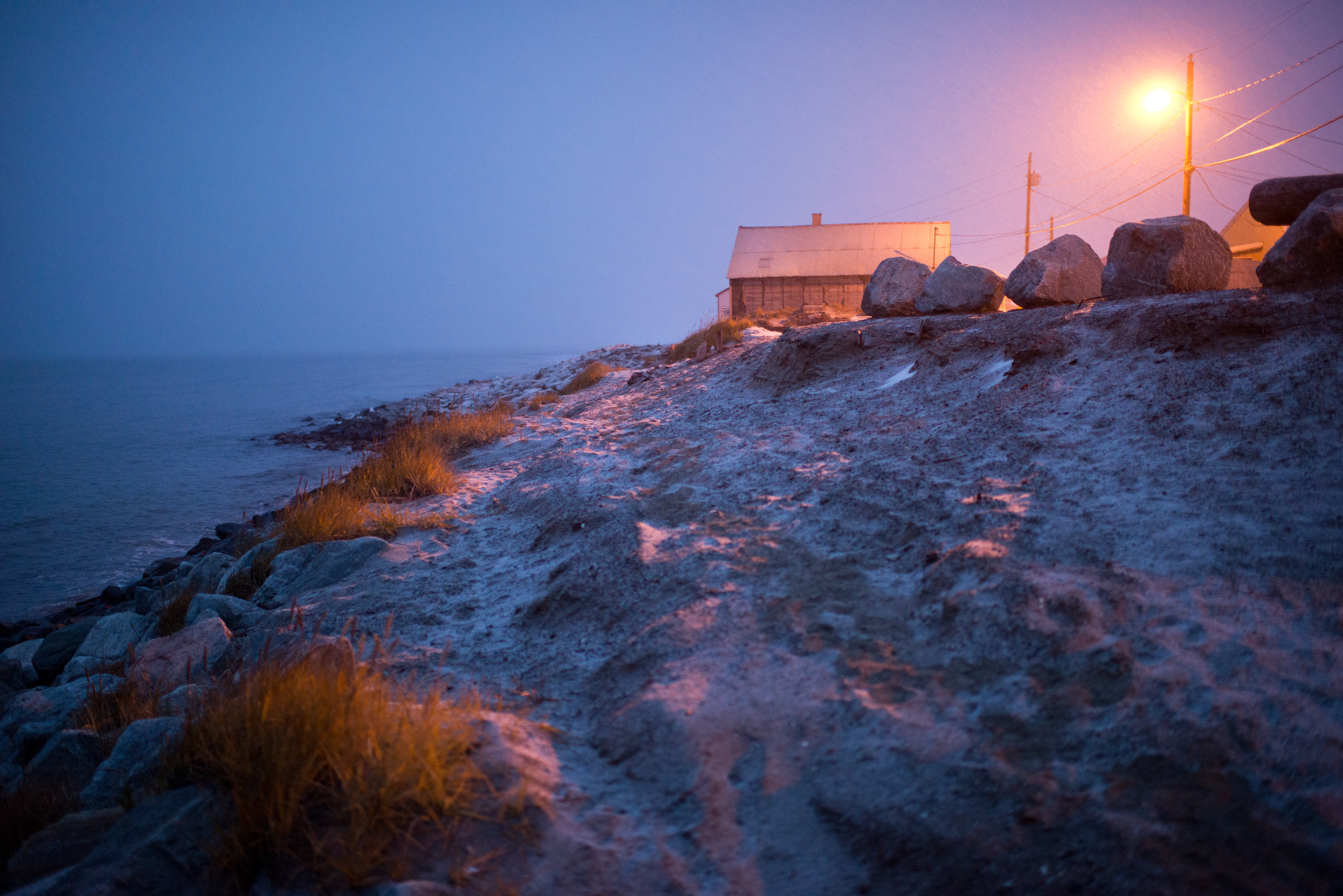How Trump made me a whistleblower after I warned of danger to Alaskans

I am not a member of the deep state. I am not big government.
I am a scientist, a policy expert, a civil servant and a worried citizen. Reluctantly, as of today, I am also a whistleblower on an administration that chooses silence over science.
Nearly seven years ago, I came to work for the Interior Department, where, among other things, I’ve helped endangered communities in Alaska prepare for and adapt to a changing climate. But on June 15, I was one of about 50 senior department employees who received letters informing us of involuntary reassignments. Citing a need to “improve talent development, mission delivery and collaboration,” the letter informed me that I was reassigned to an unrelated job in the accounting office that collects royalty checks from fossil fuel companies.
[Trump administration sought last-minute changes to soften Arctic Council statement on climate change]
I am not an accountant — but you don’t have to be one to see that the administration’s excuse for a reassignment such as mine doesn’t add up. A few days after my reassignment, Interior Secretary Ryan Zinke testified before Congress that the department would use reassignments as part of its effort to eliminate employees; the only reasonable inference from that testimony is that he expects people to quit in response to undesirable transfers. Some of my colleagues are being relocated across the country, at taxpayer expense, to serve in equally ill-fitting jobs.
I believe I was retaliated against for speaking out publicly about the dangers that climate change poses to Alaska Native communities. During the months preceding my reassignment, I raised the issue with White House officials, senior Interior officials and the international community, most recently at a U.N. conference in June. It is clear to me that the administration was so uncomfortable with this work, and my disclosures, that I was reassigned with the intent to coerce me into leaving the federal government.
On Wednesday, I filed two forms — a complaint and a disclosure of information — with the U.S. Office of Special Counsel. I filed the disclosure because eliminating my role coordinating federal engagement and leaving my former position empty exacerbate the already significant threat to the health and the safety of certain Alaska Native communities. I filed the complaint because the Trump administration clearly retaliated against me for raising awareness of this danger. Our country values the safety of our citizens, and federal employees who disclose threats to health and safety are protected from reprisal by the Whistleblower Protection Act and Whistleblower Protection Enhancement Act.
Removing a civil servant from his area of expertise and putting him in a job where he’s not needed and his experience is not relevant is a colossal waste of taxpayer dollars. Much more distressing, though, is what this charade means for American livelihoods. The Alaska Native villages of Kivalina, Shishmaref and Shaktoolik are perilously close to melting into the Arctic Ocean. In a region that is warming twice as fast as the rest of the planet, the land upon which citizens’ homes and schools stand is newly vulnerable to storms, floods and waves. As permafrost melts and protective sea ice recedes, these Alaska Native villages are one superstorm from being washed away, displacing hundreds of Americans and potentially costing lives. The members of these communities could soon become refugees in their own country.
[Trump cannot reverse hopeful climate change trends]
Alaska’s elected officials know climate change presents a real risk to these communities. Gov. Bill Walker and Sen. Lisa Murkowski have been sounding the alarm and scrambling for resources to help these villages. But to stave off a life-threatening situation, Alaska needs the help of a fully engaged federal government. Washington cannot turn its back.
While I have given small amounts to Democratic candidates in the past, I have no problem whatsoever working for a Republican administration. I believe that every president, regardless of party, has the right and responsibility to implement his policies. But that is not what is happening here. Putting citizens in harm’s way isn’t the president’s right. Silencing civil servants, stifling science, squandering taxpayer money and spurning communities in the face of imminent danger have never made America great.
Now that I have filed with the Office of Special Counsel, it is my hope that it will do a thorough investigation into the Interior Department’s actions. Our country protects those who seek to inform others about dangers to American lives. The threat to these Alaska Native communities is not theoretical. This is not a policy debate. Retaliation against me for those disclosures is unlawful.
Let’s be honest: The Trump administration didn’t think my years of science and policy experience were better suited to accounts receivable. It sidelined me in the hope that I would be quiet or quit. Born and raised in Maine, I was taught to work hard and speak truth to power. Trump and Zinke might kick me out of my office, but they can’t keep me from speaking out. They might refuse to respond to the reality of climate change, but their abuse of power cannot go unanswered.
Joel Clement was director of the Office of Policy Analysis at the U.S. Interior Department until last week. He is now a senior adviser at the department’s Office of Natural Resources Revenue.
The views expressed here are the writer’s and are not necessarily endorsed by Arctic Now, which welcomes a broad range of viewpoints. To submit a piece for consideration, email commentary (at) arcticnow.com.